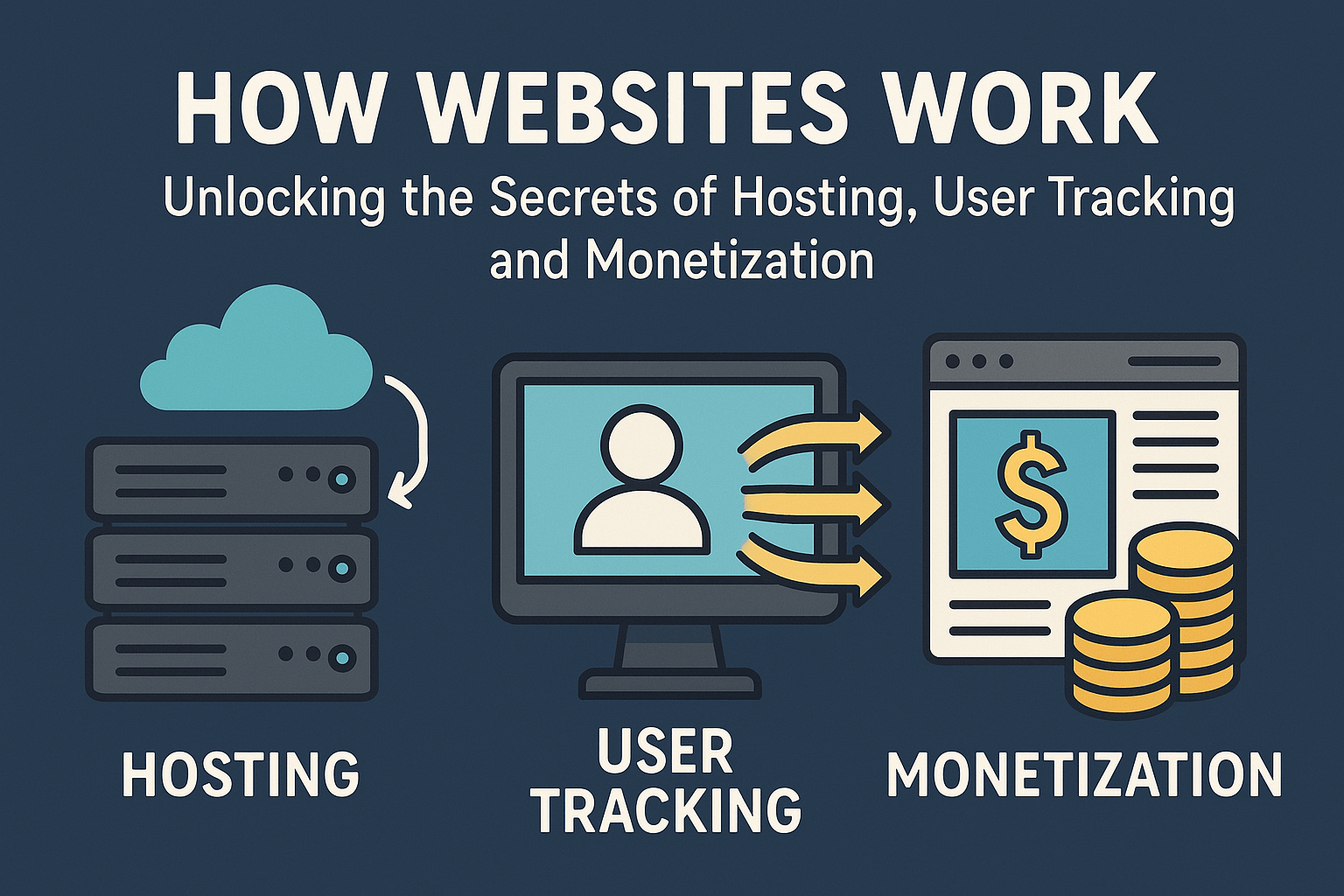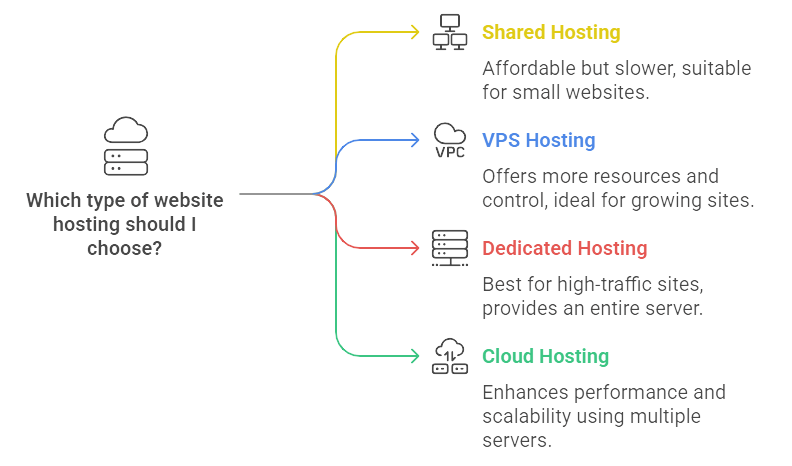
In today’s digital world, websites power everything from businesses to personal blogs. But have you ever wondered how websites work? Whether you’re a beginner or an aspiring web developer, understanding the fundamentals of websites is essential.
In this guide, we’ll break down website hosting, website tracking, and website monetization, explaining how they all come together to create a functional and profitable website. By the end, you’ll clearly understand how websites make money and what goes on behind the scenes.
1. How Websites Work
A website is a collection of web pages that are stored on a server and accessed through the internet. It consists of two main parts:
- Frontend (Client-Side): This is what users see and interact with—HTML, CSS, and JavaScript power the visual and interactive elements.
- Backend (Server-Side): This handles data, logic, and database interactions using technologies like PHP, Python, or Node.js.
When a user types a website address (URL) into their browser, several processes take place:
- The browser sends a request to the web hosting server.
- The server retrieves the necessary files and data.
- The website is displayed in the browser.
This entire process happens in milliseconds, creating a seamless experience for users.
2. How Website Hosting Works
Every website needs a place to store its files, which is where website hosting comes in. Hosting providers store website data on servers and make it accessible to users worldwide.

There are different types of website hosting, including:
- Shared Hosting: Multiple websites share the same server (affordable but slower).
- VPS Hosting: A virtual private server offers more resources and control.
- Dedicated Hosting: A single website gets an entire server (best for high-traffic sites).
- Cloud Hosting: Uses multiple servers for better performance and scalability.
To launch a website, you need:
- A domain name (e.g., www.revampwebz.com)
- A web hosting provider (like Bluehost, SiteGround, or AWS)
- A content management system (CMS) like WordPress or Shopify
Without website hosting, a site cannot be accessed online, making it a crucial step in the web development process.
How Websites Track User Activity
Websites track user activity to understand visitor behavior, improve user experience, and optimize marketing strategies. Website tracking is done using various tools and technologies.
Common Methods of Website Tracking
- Cookies: Small files stored on a user’s device that remember preferences, login details, and browsing history.
- Session Tracking: Monitors a user’s journey on the website in real-time.
- Google Analytics: Provides detailed insights into website traffic, user demographics, and behavior.
- Heatmaps: Show where users click, scroll, and spend the most time on a page.
Why Website Tracking Matters
- Helps website owners improve content and navigation.
- Enables businesses to personalize user experiences.
- Assists in targeted advertising and remarketing.
However, website tracking must comply with privacy laws like GDPR and CCPA, requiring websites to inform users and obtain consent before tracking their data.
4. How Websites Make Money
One of the most exciting aspects of how websites work is their potential to generate revenue. There are multiple ways websites can earn money, depending on their audience and content strategy.
Monetization Methods
- Advertising: Websites can display ads through networks like Google AdSense. The website owner earns money every time a visitor clicks on the ad.
- Affiliate Marketing: By promoting products or services from other companies, website owners earn commissions for any sales made through their referral links.
- Selling Products or Services: Many websites make money by selling physical or digital products directly to consumers.
- Subscription Models: Some websites charge users a recurring fee for exclusive access to premium content or services.
- Donations: Websites with niche audiences, such as bloggers or content creators, may ask for donations to support their work.
Which Monetization Method is Right for Your Website?
Choosing the right monetization strategy depends on your website’s goals, audience, and content. For example, if you’re running a blog, affiliate marketing or selling digital products could work well. If you have an e-commerce website, selling physical products or using subscription models may be more effective.
Conclusion
Understanding how websites work is the first step towards mastering web development, digital marketing, and website monetization. From website hosting and user tracking to monetization strategies, there are many components that work together to create a successful online presence.
Whether you are building your first website or looking to optimize an existing one, knowing how these elements interact will help you make informed decisions and achieve your goals.
Websites can be powerful tools to engage audiences, generate income, and share content with the world. By leveraging the right hosting, tracking methods, and monetization strategies, you can turn your website into a valuable online asset.
